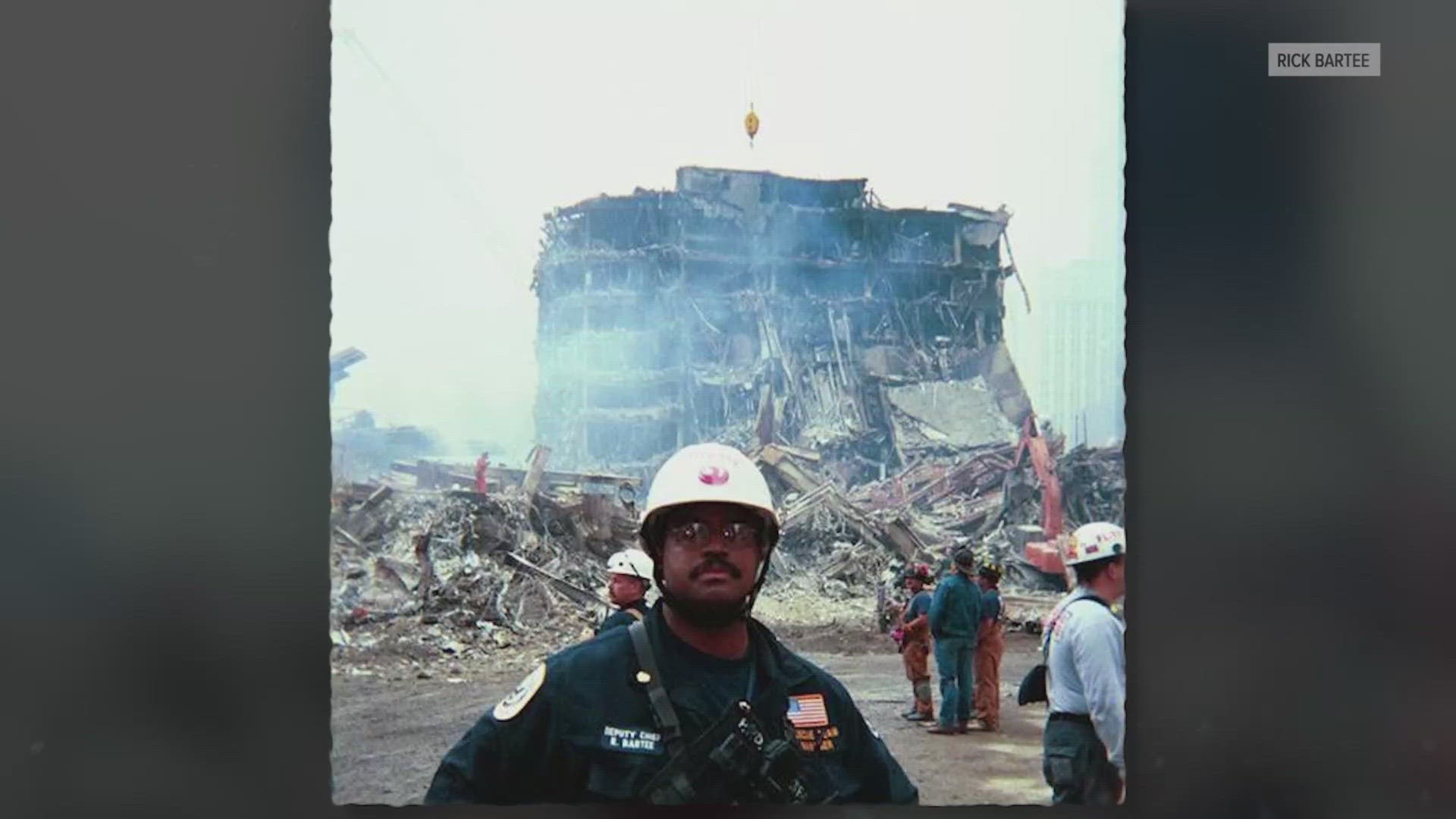ROSEVILLE, Calif. — The events of Sept. 11, 2001 shaped who many Americans are today. 22 years ago, al-Qaeda hijacked planes bound for California and flew them into the Pentagon and Twin Towers of the World Trade Center, killing thousands.
First responders like Roseville Fire Chief Rick Bartee will never forget the day they stepped foot on Ground Zero.
It started at 8:46 a.m. when American Airlines Flight 11 crashed into the North Tower of the World Trade Center in New York City. 17minutes later, another plane hit the South Tower.
Bartee watched in horror from thousands of miles away.
“I knew right then and there we were going there,” said Bartee.
He worked for the Phoenix Fire Department at the time and was part of FEMA’s Urban Search and Rescue Team – a nationwide task force trained to respond to disasters. He was at Ground Zero nine days after the attacks.
“(It was) the first time I’ve been to such devastation and destruction,” he said.
Each tower was once 110 stories; now reduced to rubble. Bartee and his team got to work searching, holding out hope they’d be able to find people alive.
Through the dust and dirt, his disposable camera captured buildings once filled with workers left unrecognizable.
The ground beneath him was so hot, his feet would burn through his boots. He found himself in the middle of the 24-hour operation sifting through the rubble by hand.
“There were bucket brigades… lines of 100 people looking in the bucket as it goes past,” he recalled.
The buckets collected signs of lives lost – rings and watches, notes from people writing to each other. Sometimes he stood still waiting to hear someone calling for help.
“There are times where you wanted to put the camera in that hole and hopefully see somebody who might be alive,” said Bartee.
He and his team carefully moved mountains of debris for days when they noticed someone watching. It was a man hoping his sons – both first responders – would be found alive.
Bartee and his team never found them. They didn’t find any first responders alive, but they did find the remains of men and women who gave everything.
“Everybody stood still. They put them on a gurney or a Stokes basket, put an American flag over them and then brought them out one-by-one,” he said.
It’s a lesson he passed on to fellow firefighters.
“Respecting that every single piece of dust (or) dirt that you're on and crawling through… it at some time could have been a person,” said Bartee. “Respect the fact you may not ever find them whole, but something of them is there.”
22 years later, Bartee is now the chief of the Roseville Fire Department and one of the leaders of the FEMA Urban Search and Rescue Task Force. He again found himself in the middle of disaster this year with the fires on Maui.
“We had over 2,000 structures that needed to be searched. The objective given was to search every single affected building that we can get into with a specialized canine to search for victims,” he said.
He held on to the lessons from 9/11.
“I gave the same philosophy I gave in New York. As you're walking through the ash or through the rubble, you respect that rubble; you don't just wipe it off there. You're walking onto it as gently as you can and have respect for the land and for the people who lived there,” said Bartee.
He knows it’s a privilege to help families. Their fire trucks read, “Our family protecting yours.” The heartbreak and horror he’s seen reminds him life is a gift.
“We know going in whether it's going to 9/11, whether it's just coming to a regular day at the fire station, any day, something could happen to you. It could be the last time we get to say hello or goodbye to them, and (you) just always have to reflect on that. (It) doesn't take tragedy of that size for something to happen, so just keep that in perspective,” he said.
Dust clouds loomed over New York City for days, filling the air with toxic gases, smoke and harmful particles like asbestos.
An estimated 400,000 people were exposed to toxic contaminants and decades later we know the many long and short-term health conditions survivors continue to face, like cancer. More than 31,000 responders and survivors are living with a cancer diagnosis.



















